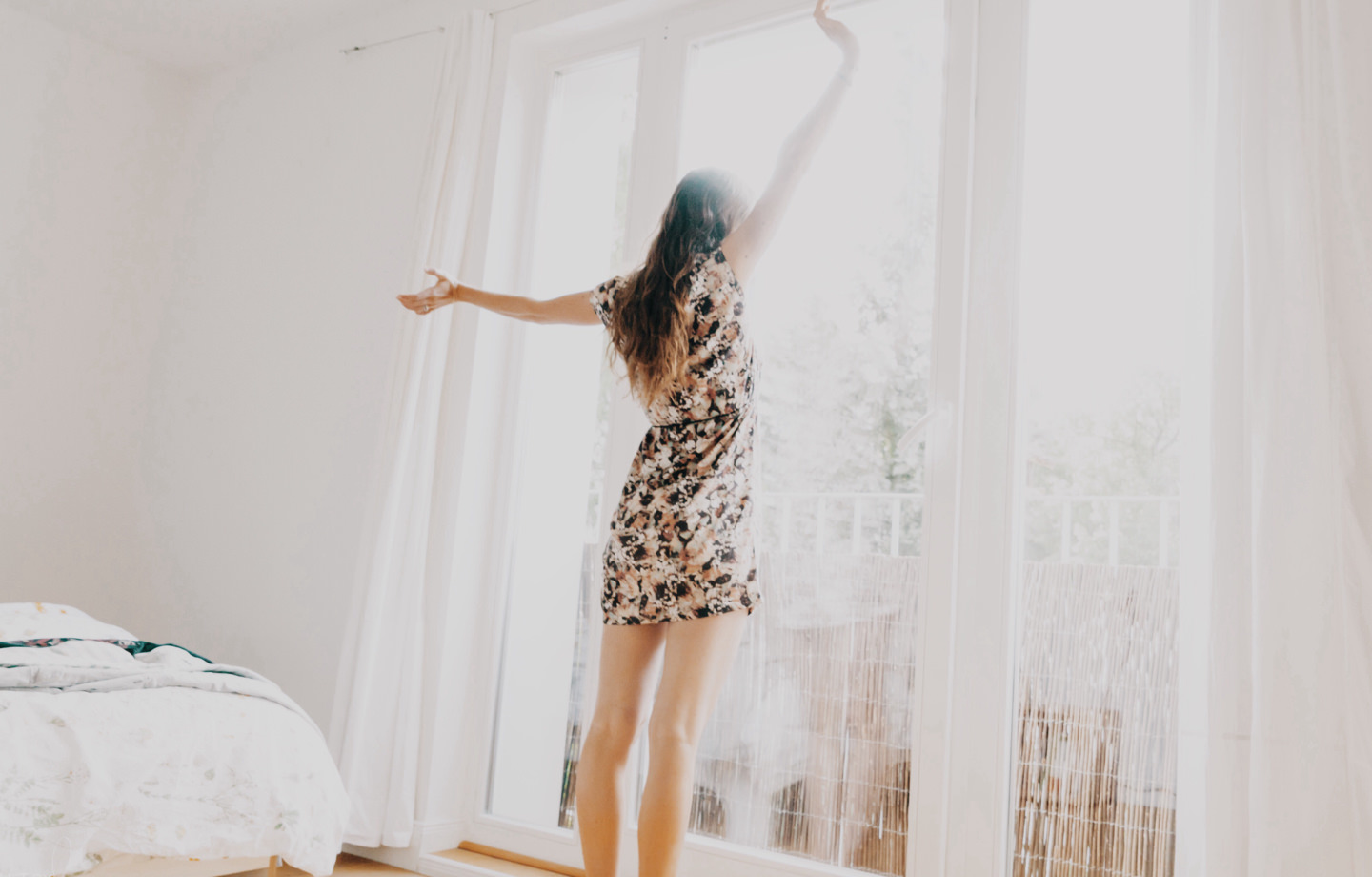It’s something we all want more of, yet can never seem to get enough of. It affects nearly every aspect of waking life, yet we brush it aside as an afterthought, in favor of one more hour of work, one more email, one more episode of a binge-worthy show.
Sleep… we all want it, we all need it. Along with food, water and movement, it’s one of the most essential aspects of a healthy lifestyle, yet when it comes to improving our sleep habits and getting enough sleep, many of us allow adequate rest to take a backseat, making sleep an afterthought in our busy, hectic lives.
But sleep isn’t just important. It’s essential. Adequate sleep, which is described by the American Academy of Sleep Medicine (AASM) as 7-8 hours a night for an adult over the age of 18, plays a vital role in our mental and physical wellbeing. How we feel during daylight hours is directly related to the amount and quality of the shuteye we get at night (or vice-versa if you work the graveyard shift). If you’ve ever awoke after a night of too little or poor sleep feeling ravenous, distracted, and in a bad mood, your sleep hygiene could be to blame. If you’re thinking, “what’s sleep hygiene?” Think of it as the sleepy equivalent of brushing your teeth every day and night and washing your hands after sneezing – good sleep hygiene is following the recommended environmental and behavioral practices to get a good night’s sleep. Bad sleep hygiene, on the other hand is what too many of us are all too familiar with.
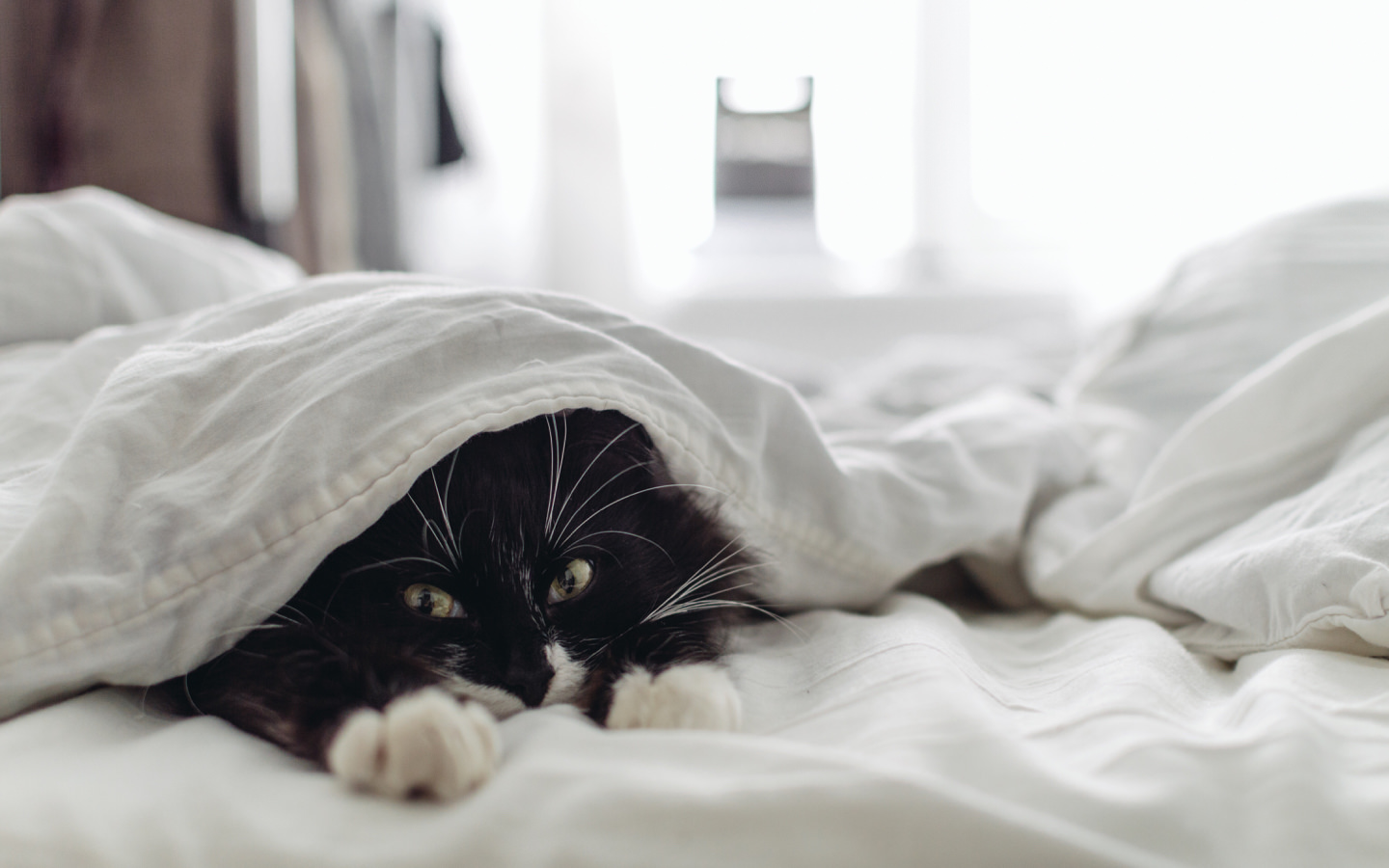
What does bad sleep hygiene look like?
Bad sleep hygiene looks a lot like what many of us consider a daily routine: After a long day at the office, we skip the gym in favor of a hurried meal at home, a few episodes of a show, and then scrolling through social media while laying in bed. Maybe there’s a TV on in the bedroom. Maybe city lights are shining through your windows. You set the alarm to go off early – too early for how late you’re falling into your unmade bed – and then you try to sleep, but more likely you toss and turn, stressed out thoughts running through your head.
Sound familiar?
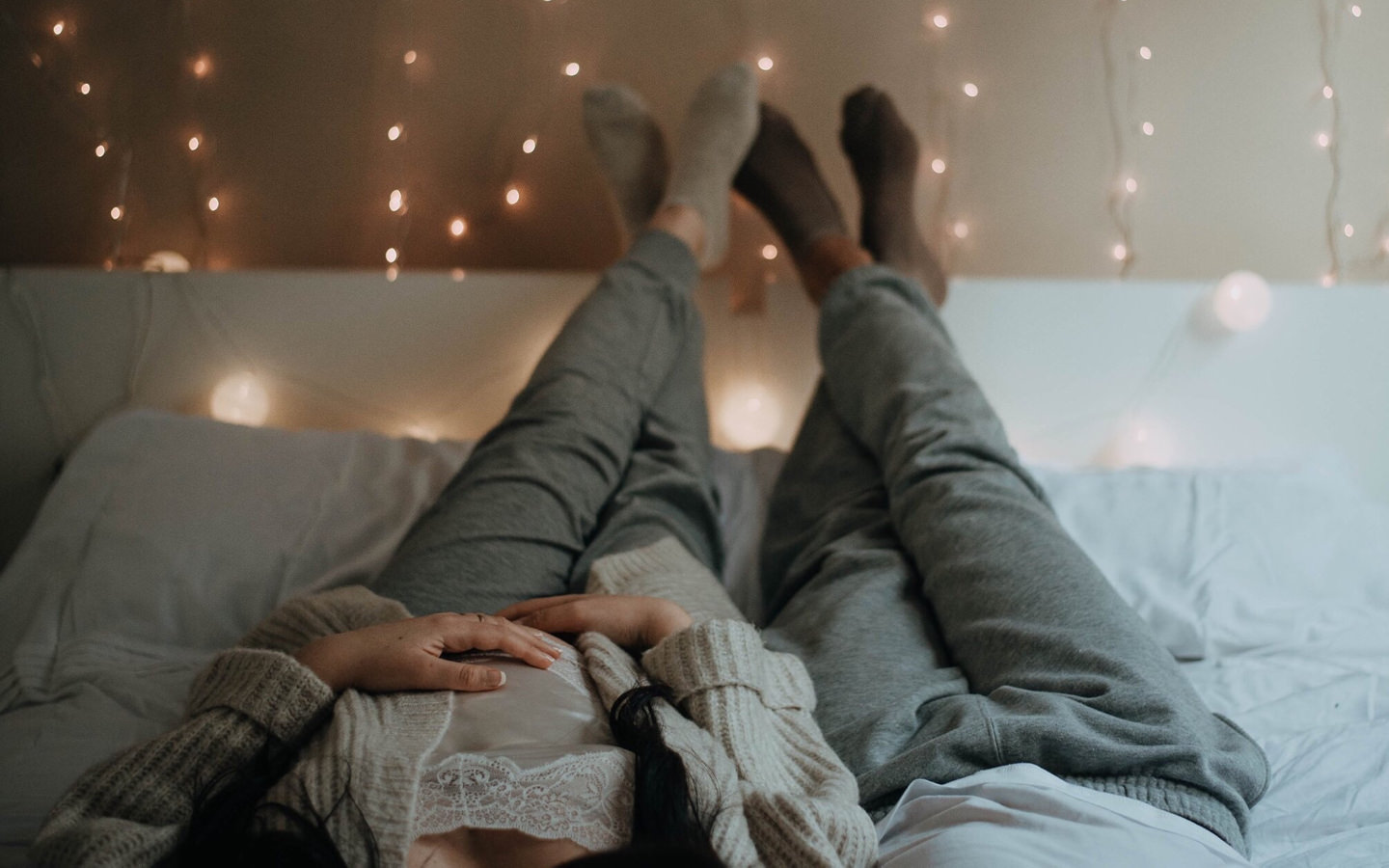
While the situation may be hard to avoid all the time (hey, life happens), it’s when a person’s schedule looks like this all the time that the trouble starts. While the damage done by inadequate amounts of quality sleep can typically be seen immediately (think distracted days at work and falling prey to the office snack cabinet), what’s even more concerning is the damage done over time. Chronic sleep deficiency could lead to health problems, including hormone imbalance and weight gain (not to mention a bad attitude and stressed out state of mind). It’s scary stuff, yes, and the truth is, you can be doing everything else right – eating great food, exercising regularly, seeing your doctor – but a poor sleep habit can upend it all.
So… how do you sleep better? The good news is, the steps to improving your sleep are simple and can be put into place tonight. Ready to catch some Z’s? Read on for easy ways to sleep better!
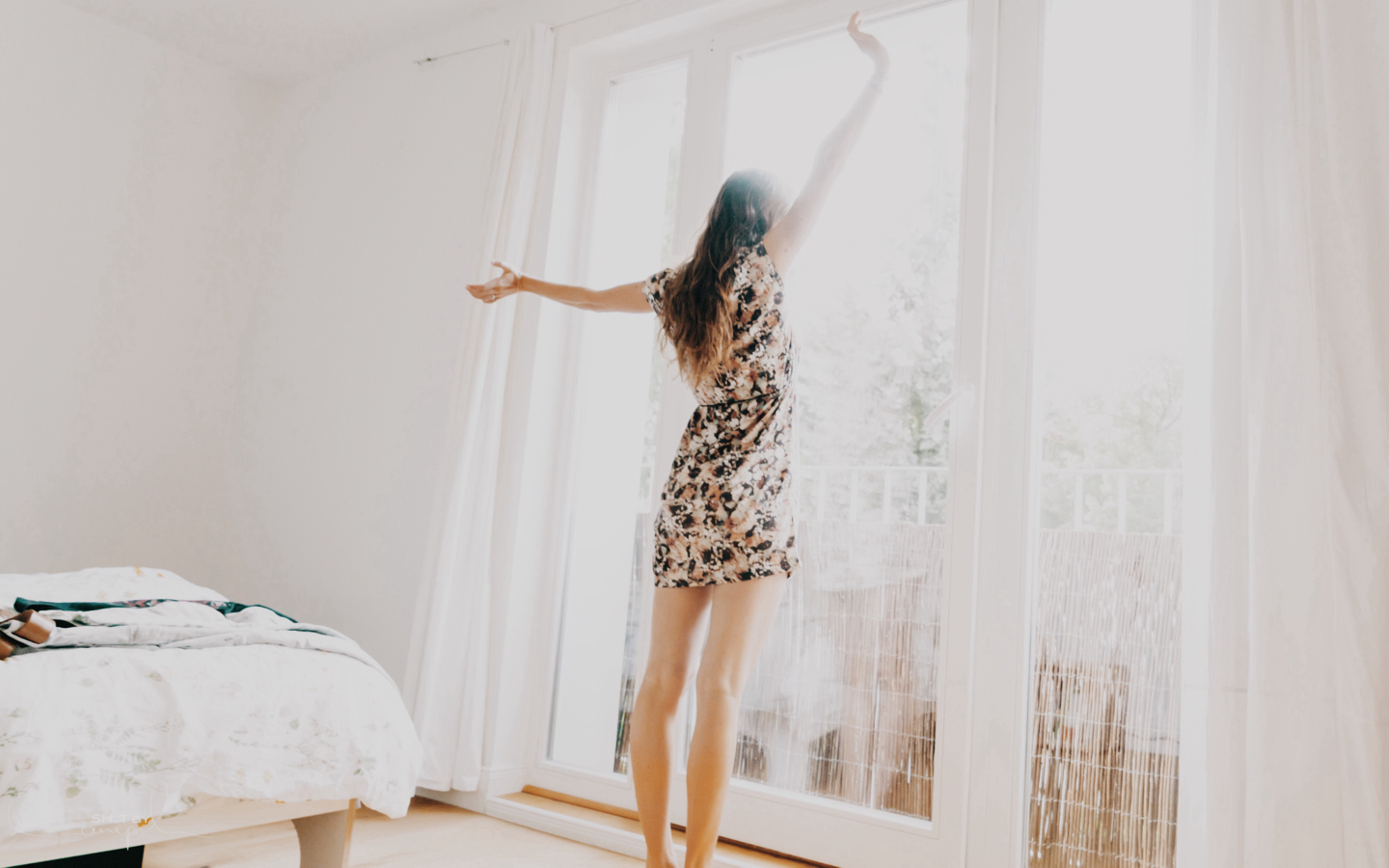
Opt for eight
If you’re having trouble getting out of bed in the morning, you’re probably not getting nearly as much sleep as you need. As we mentioned above, the recommended amount for anyone over the age of 18 is seven to eight hours of sleep per night, but you could very well need more – or even less! The best way to find out? Go to bed early and make note of when you wake naturally, sans alarm, for a week. If that’s not possible (we’re not recommending anyone sleep through the workday), count backwards from when you need to wake up by eight hours and then turn in by that time. So if you need to wake by 6 AM, you’ll need to turn off the lights by 10 PM to reap the recommended eight hours. It may sound drastic in our overworked, always on world, but that’s what good sleep really looks like. Try it for a week and pay close attention to how you feel, we’re willing to bet that you’ll feel so well-rested, those couple extra hours of nighttime will be well worth the sacrifice.
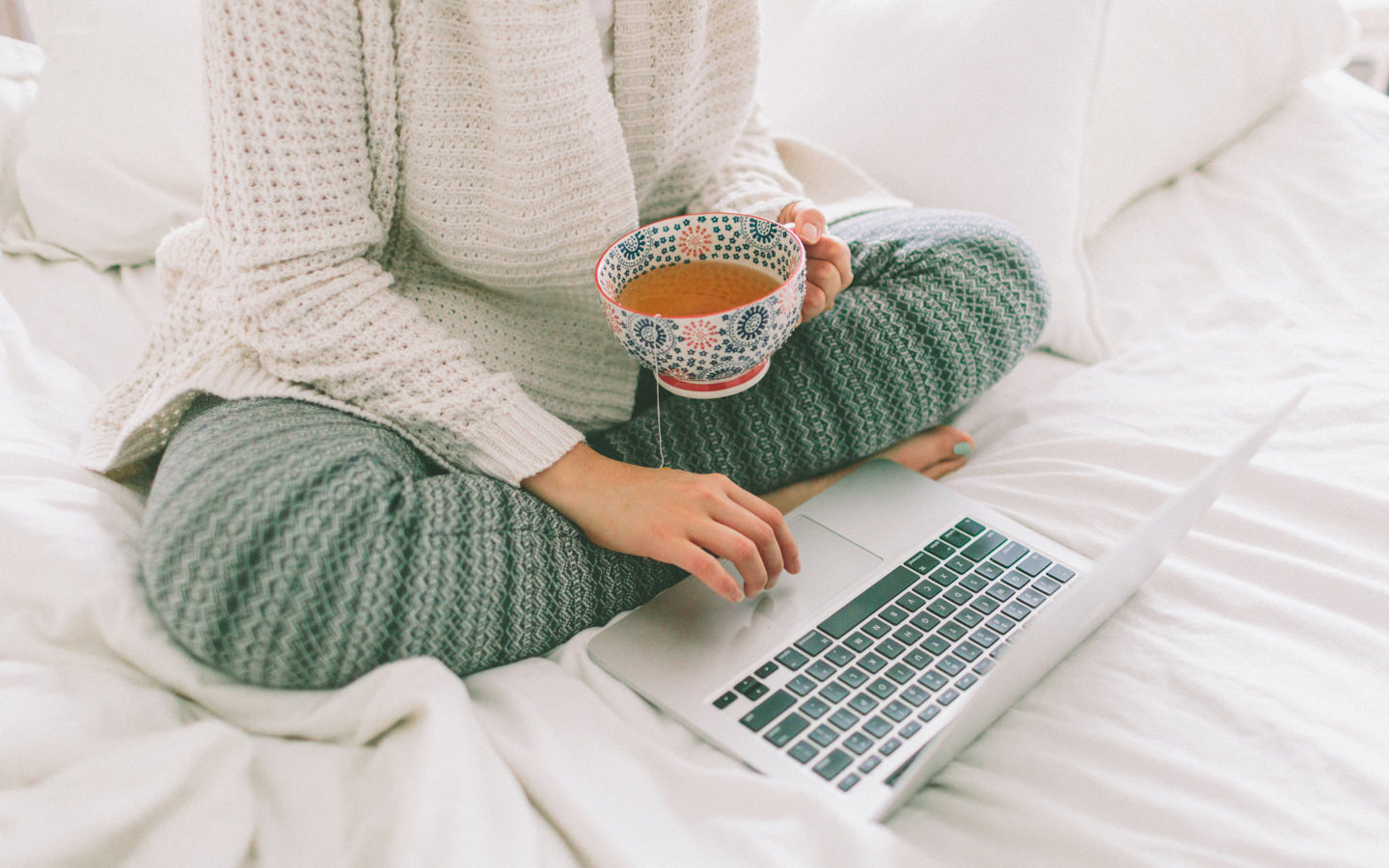
Put screens away
By now, most of us have heard about the damage that blue light emitted from our devices can do on our eyes and sleep schedule. If not, a quick rundown: Essentially, the bright light emitted by our phones and screens tricks the body into thinking it’s daylight all the time. When your internal clock, or circadian rhythm, is off, your body doesn’t know when to feel sleepy. By staring at a screen right up until bedtime, you’re essentially commanding your body to sleep when it thinks it’s 1 o’clock in the afternoon – not realistic!
To get your natural sleep-wake cycle back to normal, opt to turn off screens one to two hours before bed. If you find it hard to tear yourself away from your favorite program, try opting for an audiobook or podcast instead, or dive into a great book. When you absolutely must spend time online or on your phone in the evening, invest in a pair of blue light-blocking glasses or install a program like f.lux on your computer, which automatically adjusts the temperature of the light emitted from your screen.
During the day, try to get as much natural light as possible, especially first thing in the morning to signal to your body that it’s time to wake up. If you live where it’s often cloudy, you might consider investing in a light therapy lamp to mimic the sunlight – especially during the dark winter months.
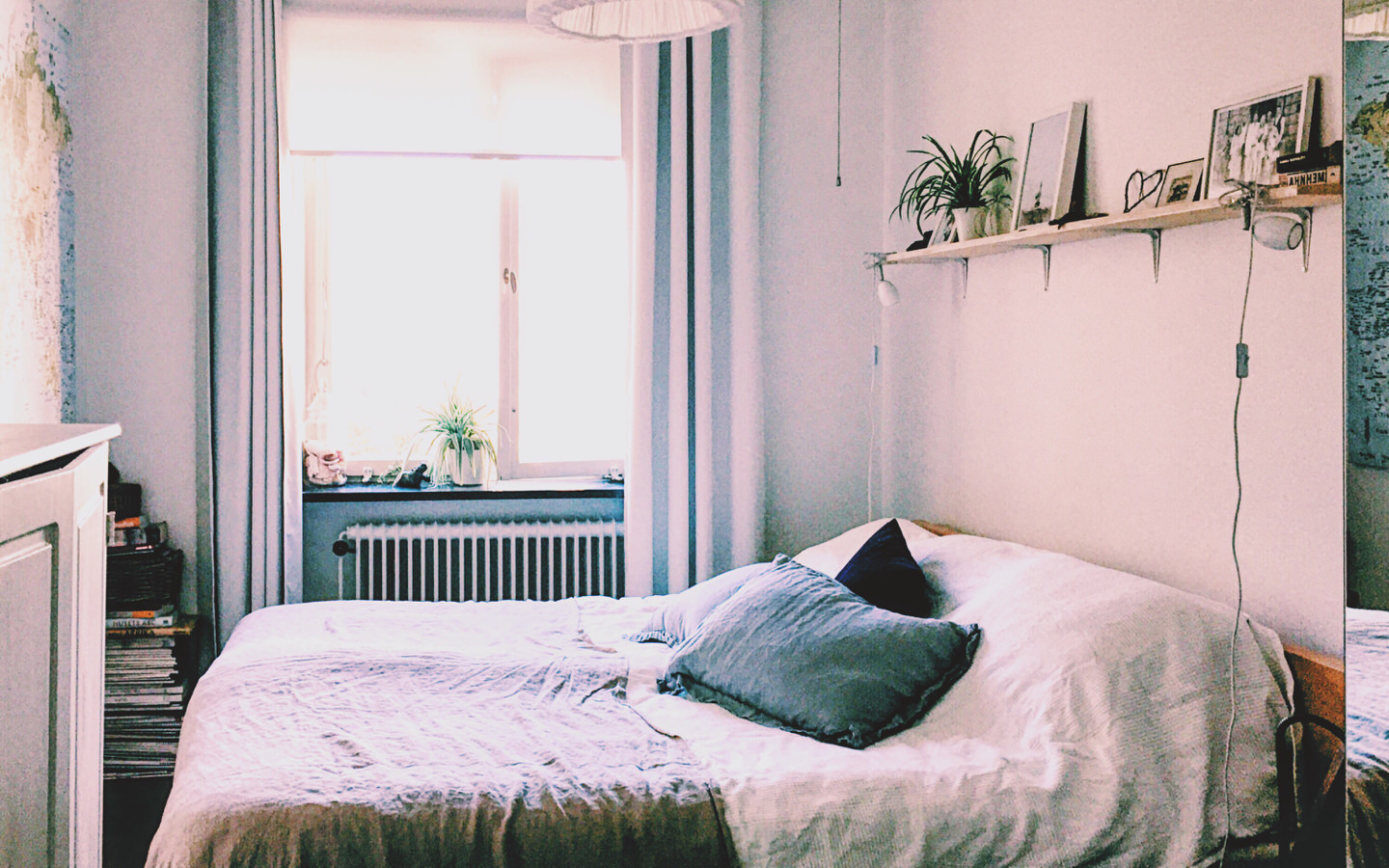
Create a sanctuary
If the state of your bedroom stresses you out, it’s probably not helping you sleep soundly. Investing in your space is an investment in yourself, which includes taking the time to keep it tidy and clutter-free – yes, we’re talking about putting away your clothes and making your bed. Turns out, your mom was onto something when she bugged you to do the same all those years ago! While you’re at it, you may consider upgrading your mattress to one that’s more supportive and eco-friendly, purchasing a new set of cozy sheets, and installing a soft-lit bedside lamp or sconce. If bright city lights shine through your windows, install blinds to block out the artificial light, and remove TV’s and other distractions. When your bedroom feels like a sanctuary, somewhere that you’d actually want to spend time, you’re more apt to want to be there. And more apt to get the best sleep of your life.
How about you? Do you have tips for improving your sleep quality? Let us know by tagging us on social with @AvocadoMattress and #AvocadoGreenMagazine

Shop Pillows
The Essential Organic Pillow Collection
Gentle, breathable, non-toxic support.




